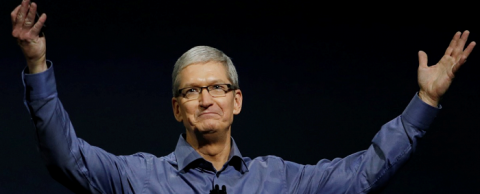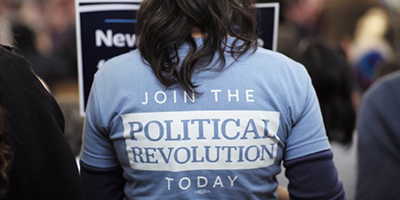People and Organisations

We are a diverse group of academics who research many aspects of work and organisations.
These can be broadly understood as centring on organisation studies and organisational psychology; and management and organisational learning, processes, change and innovation. Members of the department also have an interest in academic practices like research ethics and the politics of knowledge production.
Research into Employment and Equitable Futures
We seek to explore and shape the future direction of equitable futures, work and society with dedicated research into this area. In partnership with The People Space, this academic centre of excellence draws on the Department for People and Organisations' scholarly expertise on themes of identity, leadership, gender, bodies, ethics, power and learning to inform policy makers, organisational leaders, social practitioners and people from across contexts to work together to co-create innovative solutions for meeting these coming opportunities and challenges.
Gendered Organisational Practice
This research cluster takes feminist solidarity as a starting point to create a space where feminists of any gender can share insights and knowledge from academic study and practice. The cluster fosters continuous collaboration and exchange between practitioners and academics and provides a hub for those interested in developing equality through their research, but also for practitioners wanting to make their organisations more egalitarian and fairer places. Current areas of expertise include gendered working bodies, feminist organising and gender and sexuality.
Research interests
Organisation studies and organisational psychology
- Alternative organisations and organising
- Civil society organisations
- Corporate social responsibility
- Critical approaches to leadership and leadership dilemma
- Critical management studies
- Diversity in organisations
- Emotions in organisations
- Employee branding
- Financialisation and political and ethical responses
- Gender, sexuality, the body in organisations and how bodies are organised
- Human-animal relations in organisations
- Individual and group behaviour in organisational contexts
- The interplay between work and health
- Organisational democratic practice
- Organisational and individual identity, subjectivity, selfhood and the meaning of work
- Organisations, work and social inclusion
- Post-colonial relations in organisations
- Power, politics and organisations
- Professional occupations
- Precarious work
- The production, dissemination and contestation of meaning in organisations
- The psychology of financial behaviour
- Risk, uncertainty, and resilience
- Sociological accounts of work
- Transformations in technological and institutional conditions
Management and organisational learning, processes, change and innovation
- Change management
- Cross-cultural differences and self and group regulation in online learning
-
Collective organising and social learning processes
-
Decision-making under radical uncertainty
-
The development of business and management practices
-
Entrepreneurship
-
Formal and informal learning in organisations
-
Green HRM
-
Higher education management
-
Knowledge management
-
Management Information Systems
-
Managing inter-organisational relations in complex services
-
Management practices
-
Operations management
-
Serious games and the contribution of gamification to organisational learning and innovation
-
Strategic change
-
Supply chain management and behaviour
-
Supply chain analytics and modelling
-
Supply chain performance measurement systems
-
Sustainability and resilience in the supply chain
Academic practices
- Embodiment and affect in research
- The politics of academic knowledge production
- Research ethics
- Research methods
Academic Publications
Full details of our research publications can be found on Open Research Online and via our staff pages.
Teaching
Members of the Department teach across undergraduate, postgraduate and executive education modules in areas such as organisational behaviour, management of learning and change, professional development, human resource management, creativity, leadership, innovation, organisational culture and organisational development. We also run the CIPD accredited MSc in Human Resource Management.
Contact the Department for People and Organisations
For all department-related enquiries, please email us.
For all other enquiries, including student and alumni, please visit our contact us page.

Apple and Ireland are betting on ‘Nation Inc’ and a world of shareholder citizens
When the European Union decided to fine Apple €13.5 billion for tax evasion in Ireland last week, it didn’t take long for the Irish government to join with Apple to announce it would appeal the ruling.

Countdown to start of Europe's first MOOCs for academic credit
The OUBS is to be the first business school in Europe to offer credits for its courses through MOOCs on the FutureLearn social learning platform.

After Bernie Sanders: how progressives can actually change America
Bernie Sanders may have endorsed Hillary Clinton, but politics as usual has had its day. It's time for progressivism to move fast.
Pay for performance around the world: how much choice do firms have?
Performance-related pay is much more likely to be adopted in firms where HR management is seen as strategically important.
Exceptional student and alumni achievements honoured at the OUBS Awards
The highest achieving students and alumni who have made an outstanding contribution to an organisation or society have been commended at the 13th annual OUBS awards. Among the winners were a publishing manager, retail banker, civil servant and an independent public nurse.
Executive Dean appointed Vice-President (academic), EFMD
Professor Rebecca Taylor, Executive Dean of The Open University Business School, has been appointed Vice-President (academic) of the European Foundation for Management Development.
Is the productivity drive hurting employers as well as employees?
Work, consume, die. The relentless drive for improvements in our workplaces brings unexpected costs.
Vice-Chancellor Q&A
Video highlights from 4th May 2016 Breakfast Briefing, the OU's Vice-Chancellor Peter Horrocks responds to questions from Dr Andrew Lindridge, Senior Lecturer in Marketing at the OU Business School - discussing the future of the OU, the importance of our students’ success, and how to operate in an environment of change in turbulent times.
FutureLearn and The Open University announce MOOCs for credit
Learners will now be able to use its massive open online courses (MOOCs) to earn academic course credits towards degrees and an MBA, professional qualifications and formal CPD accreditation.

When all that we count becomes all that counts: HR at the heart of the productivity shift
The new productivity culture replaces top-down coercion with bottom up empowerment strategies and HR is at its heart, but what is the dark-side of this shift?
News

How to design menopause leave policies that really support women in the workplace
More than 15 million women are in employment in the UK right now, which means menopause is undoubtedly a workplace issue. In this article, Jo Brewis, Professor of People and Organisations writes about how to design menopause leave policies that really support women in the workplace.
- How to design menopause leave policies that really support women in the workplace
- Learning different ways to do HR in different organisations and countries
- The rise and fall of Topshop. OU/BBC series lifts the lid on iconic brand’s fall from grace
- Small bakery owners: we want your views!
- Self-employment: what is it, why do it and how has the pandemic affected it?
